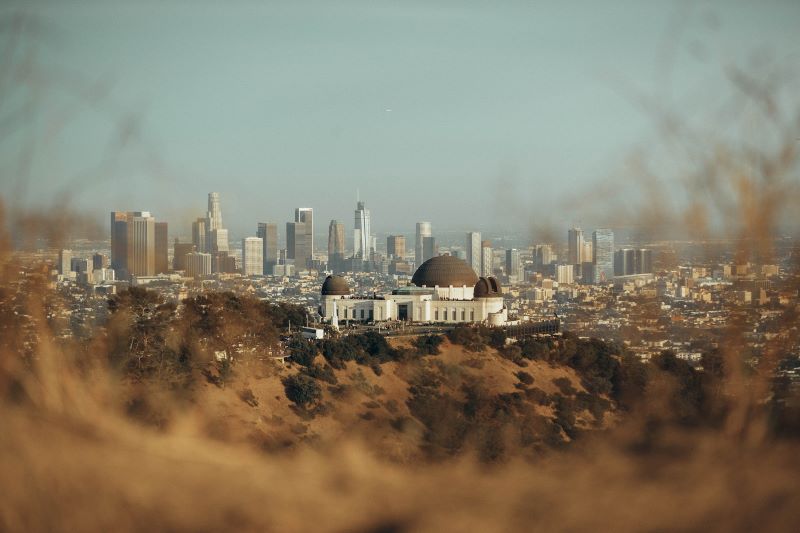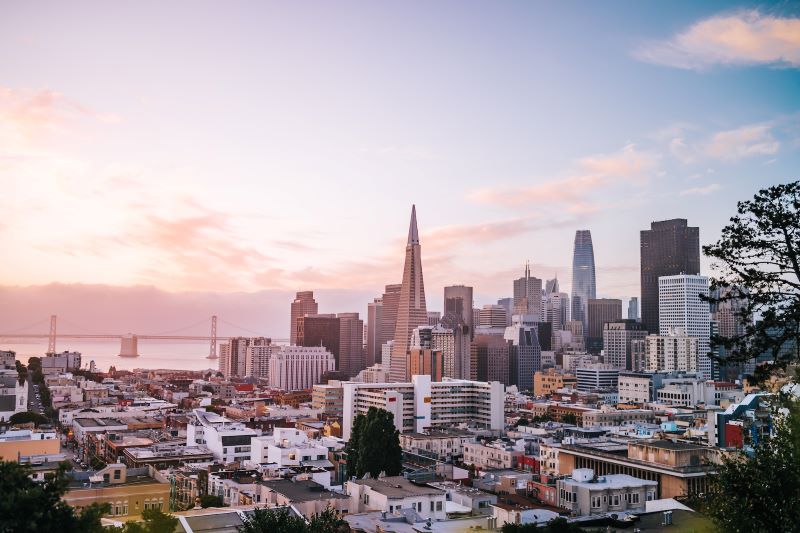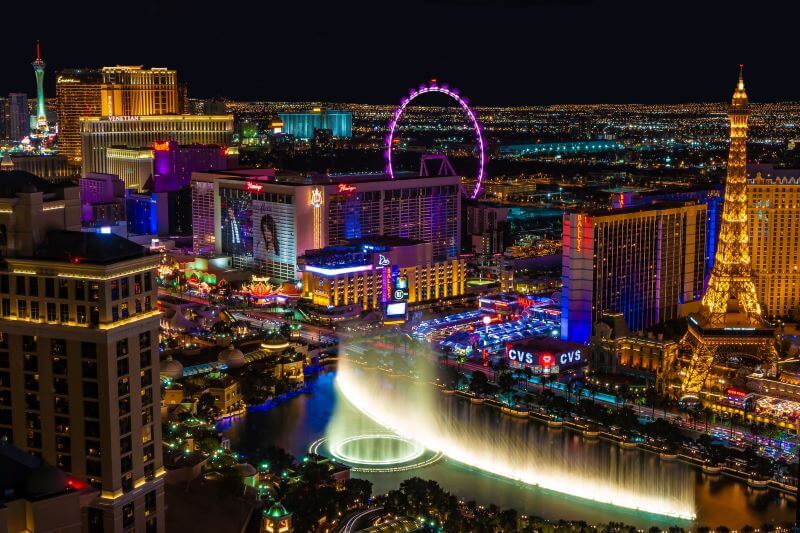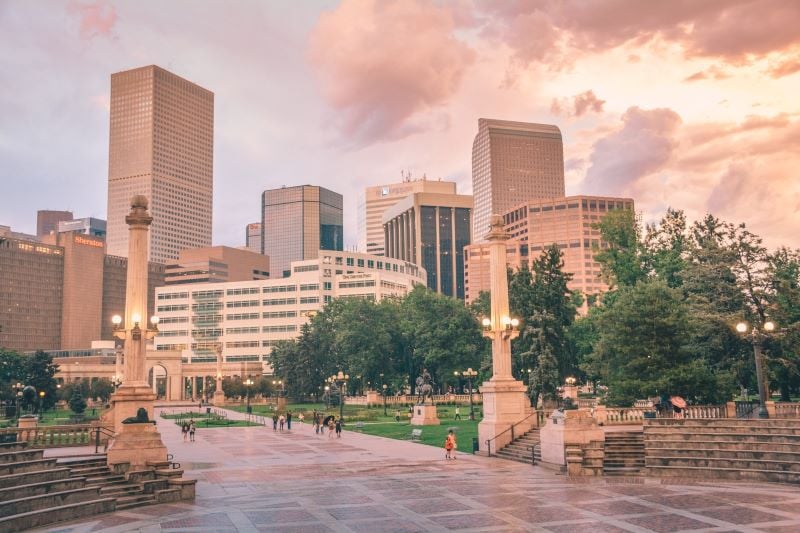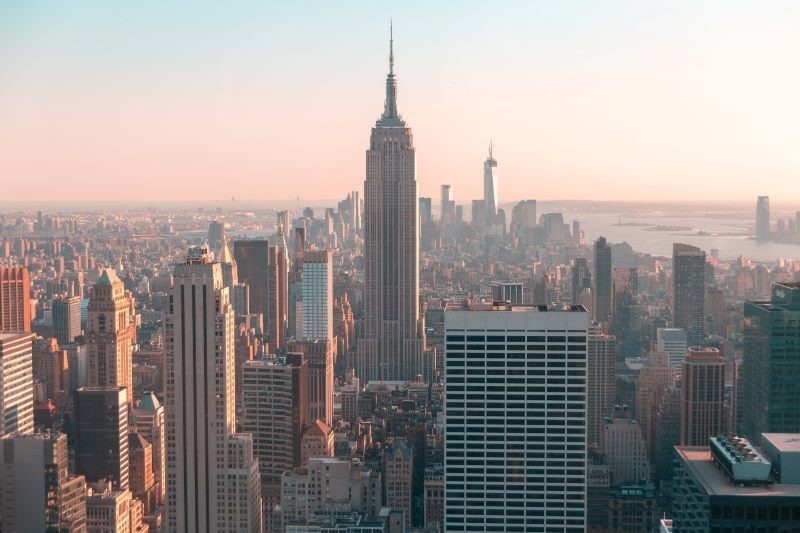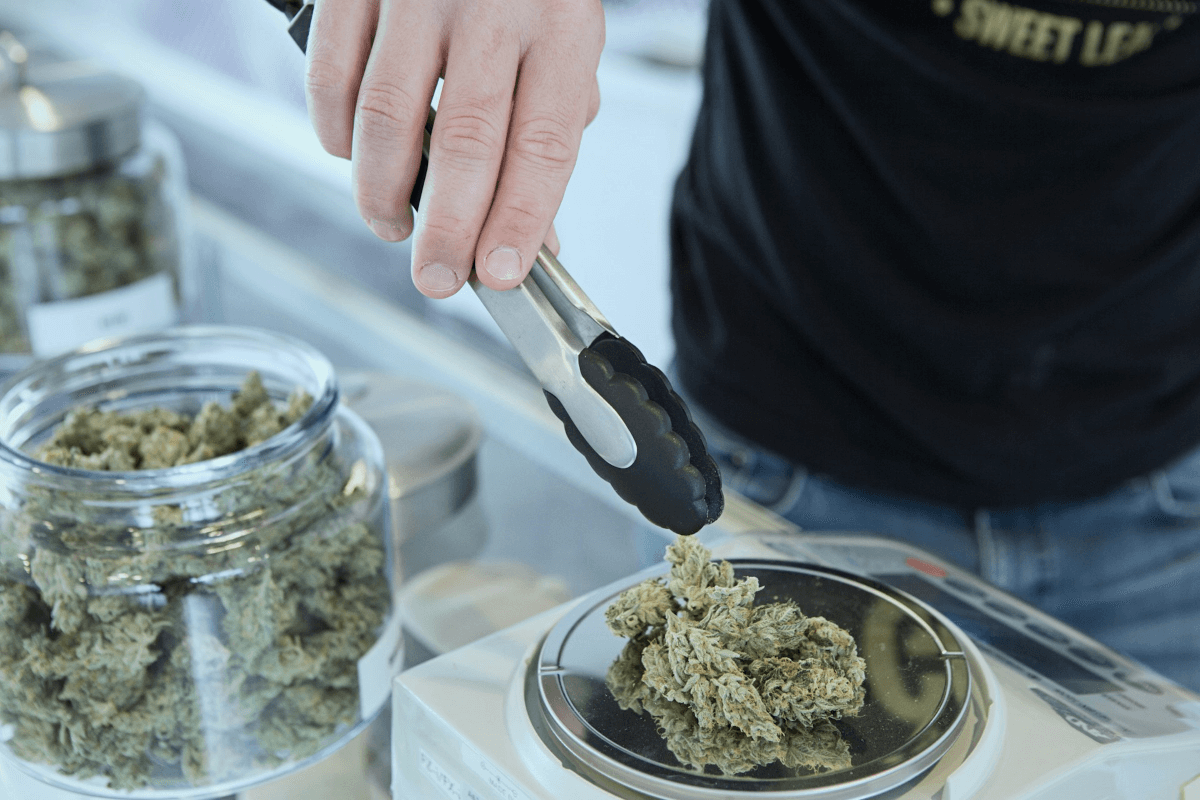
Where in the U.S. can cannabis consumers blaze their way to Cloud 9?
With soaring rates of cannabis tourism and 4 states legalizing recreational marijuana for adult use in 2023, LawnStarter ranked 2024’s Best Cities to Get Stoned.
We compared nearly 300 of the biggest U.S. cities (where recreational marijuana use is legal) based on 6 categories. More specifically, we considered access to highly rated dispensaries, pot delivery services, and bud and breakfasts, among 17 total metrics.
Take a “cannabis-cation” with help from our ranking below. To learn how we ranked the cities, see our methodology.
Editor’s note: LawnStarter neither condones nor promotes illicit drug use. This study is intended only to provide entertainment value and information. If you or someone you know may be struggling with substance abuse, call the SAMHSA National Helpline at 1-800-662-HELP (4357).
Contents
- City Rankings
- Toke of the Town: Top 5 Close Up
- Weedy Wisdom: Key Insights
- Ask the Experts
- Behind the Ranking
- Final Thoughts
City Rankings
See how each city fared in our ranking:
Toke of the Town: Our Top 5
Check out the slideshow below for highlights on each of our top 5 stoner cities. Make sure to bring your ID!
Weedy Wisdom: Key Insights
California remains the Golden State for stoners, with 94 cities scoring in the top half of our ranking — 6 of which finished in the top 10.
Los Angeles puffed to 1st place with a nearly 29-point lead over San Francisco (No. 2). La La Land boasts significantly more dispensaries, cannabis collectives, and head shops than all other cities in our ranking.
States like Connecticut, Illinois, and Washington have a long way to go to appease blazing customers. Of all the cities representing these 3 states, only Chicago (No. 38) and Seattle (No. 106) landed in the top half of the ranking. Connecticut is lacking in dispensaries and recreational users are barred from growing their own ganja in all 3 states. Washington voters may also choose to prohibit cannabis processing and sales in residential zones this fall.
Ask The Experts
7 in 10 people in the U.S. support marijuana legalization, but with states like Oklahoma voting against recreational use, there is still a long road ahead for nationwide support.
We turned to a panel of experts to light up the conversation on legalization and also help budding cannabis users toke their journey to new heights. Explore their insights below.
- In plain English, what is the difference between legalizing and decriminalizing marijuana use?
- If the federal government were to legalize recreational marijuana use, who in society would stand to benefit and lose the most and why?
- Why are states seemingly racing to legalize the recreational use of marijuana?
- How is the legalization of marijuana changing industries like banking in cities, states, and across the U.S.?
- What are the top 3 pros and top 3 cons of growing marijuana at home in places where consumers are allowed to do so?
- What’s your most important piece of advice for consumers trying marijuana recreationally for the first time in places where it’s legal?

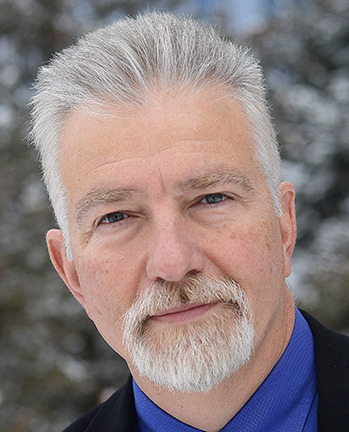







In plain English, what is the difference between legalizing and decriminalizing marijuana use?
Decriminalization: A state might get rid of all penalties for possession of marijuana.
Legalization: This typically would be broader, allowing for sale of marijuana.
If the federal government were to legalize recreational marijuana use, who in society would stand to benefit and lose the most and why?
That is a subject of some controversy. Many supporters were hoping to undo some of the racial injustice caused by unequal enforcement of marijuana laws. But as implemented, minority members lack capital resources to pay substantial costs of entry and of maintaining business. (Some communities have equity programs, but they are a small percentage of overall business).
Large corporate license holders seem to be succeeding in the industry; they have greater access to capital. But this is a new market; some big players have already dropped out (e.g., MedMen, a large corporate entity, was close to going out of business).
Why are states seemingly racing to legalize the recreational use of marijuana?
After New Mexico, which recently passed legislation, South Dakota may be in line. Voters passed a constitutional amendment, but it is tied up in the courts. Florida may have a ballot initiative next year.
How is the legalization of marijuana changing industries like banking in cities, states, and across the U.S.?
Commonly misunderstood, banks can work with the industry, but most choose not to because of complexities that make it onerous. But members of Congress often express support for changing banking laws to allow easy compliance. If I was betting, I would think that this change will be made ere too long.
What’s your most important piece of advice for consumers trying marijuana recreationally for the first time in places where it’s legal?
Not being someone who consumes marijuana, I have little advice in general. Use at home; avoid driving; smoking and vaping are bad for a person’s health. Edibles are unpredictable and so some folks end up consuming too much. Be with someone whom you trust, in case you feel paranoid.

In plain English, what is the difference between legalizing and decriminalizing marijuana use?
Decriminalization does just that: It reduces the penalty below that of a criminal charge while maintaining illegal status. A good analogy is a traffic ticket: Speeding might still be illegal, but you get a ticket, not a jail sentence.
Legalization is just that: The action is now legal, not just a different penalty version of illegal.
If the federal government were to legalize recreational marijuana use, who in society would stand to benefit and lose the most and why?
Winners: “Big Cannabis”
Why are states seemingly racing to legalize the recreational use of marijuana?
The obvious answer is money. Let’s be honest; the tax revenue is a strong driver.
How is the legalization of marijuana changing industries like banking in cities, states, and across the U.S.?
Banking? Not so much. It’s introducing a disruptive element to the beverage ethanol industry, at least in the short term.
What are the top three pros and top three cons of growing marijuana at home in places where consumers are allowed to do so?
Pros:
- Strong statement of your views
- You control the environment.
- Great for the hobbyist who wants to get in deep
- Sense of not supporting “Big Cannabis”
Cons:
- You might not have a green thumb!
- You’ll have to learn about cultivation.
- You need the space.
What’s your most important piece of advice for consumers trying marijuana recreationally for the first time in places where it’s legal?
For first-time users, read up on what effects (and side effects) to expect. Educate yourself about some of the strains (and therefore THC and other cannabinoid content). Go with a friend!

In plain English, what is the difference between legalizing and decriminalizing marijuana use?
Decriminalization generally means imposing a noncriminal penalty (e.g., a civil fine, similar to a speeding ticket) rather than a criminal penalty for a violation of the law.
If the federal government were to legalize recreational marijuana use, who in society would stand to benefit and lose the most and why?
I assume shareholders in large cannabis businesses would have the most to gain.
Why are states seemingly racing to legalize the recreational use of marijuana?
I wouldn’t say “racing,” but the pace of legalization is indeed picking up, probably because it no longer seems like a radical idea.
What are the top three pros and top three cons of growing marijuana at home in places where consumers are allowed to do so?
Make sure you are in compliance with state law, which imposes limits on the amount that can be possessed, etc. If you go beyond the limited exception to illegal possession under state law, you lose the protection of legalization.

In plain English, what is the difference between legalizing and decriminalizing marijuana use?
Decriminalization means that law enforcement will devote only the most minimal of resources toward policing an issue. For marijuana, basically this means that a person in possession of small amounts of marijuana for personal use would not be arrested if the police found it. This depends on jurisdiction, but there may be some tickets or fines that may apply if caught with marijuana.
Legalization expands this by allowing retail businesses to actually sell marijuana, whereas this is not the case with decriminalization. Legalization then opens up the potential for tax revenue to be procured through legal sales of marijuana, whereas decriminalization does not.
In both cases, law enforcement may still devote resources toward arrest and prosecution of individuals in possession of large amounts of marijuana. Again, this will vary by jurisdiction.
If the federal government were to legalize recreational marijuana use, who in society would stand to benefit and lose the most and why?
I don’t necessarily think that anyone “loses” if marijuana becomes federally legalized. Given that marijuana use has demonstrated some medical benefits, full legalization will only open up the potential for more research on the topic. Beyond that, I am pretty uncomfortable with government at any level having the capacity to restrict mine or anyone else’s rights to do anything to our own bodies. So, I would see legalization of marijuana use as a win for all American’s civil liberties in that regard.
That said, I would say I do have some major concerns about how legalization might be carried out. I worry a great deal about corporatization of the marijuana industry. Essentially, this could lead to the McDonalds-ization of the industry very quickly if large corporations gain a competitive advantage in having the funding and infrastructure to set up operations at the expense of smaller business owners. Some small business owners have highlighted this issue in that it is difficult to get their businesses off the ground for this reason. Legalization would help with this in some respects, as getting loans for marijuana businesses remains very difficult due to the risk involved for banks due to the federal prohibition.
In the meantime, this is one reason why some jurisdictions have attempted to apply a social-equity lens to the situation in order to remedy some of these issues. There is necessarily a racialized aspect to this entire issue also that cannot be ignored. If we speak about communities being harmed by the war on drugs, our Black and Brown communities have certainly been disproportionately impacted for decades. This fact highlights the need to provide equitable access to individuals in these communities to allow them the opportunity to receive some kind of remediation for these harms done.
This is perhaps my biggest concern with federal legalization, as I think that there is a pretty high likelihood that this would be botched and the communities that have been harmed the most by decades of prohibition will not have equitable access to reap the potential benefits of legalization.
One final concern pertains to teenage marijuana use. While research has indicated that marijuana may have some medical benefits, it is not without potential risks, albeit somewhat small compared to other drugs. However, the cognitive impacts of marijuana use generally are of greatest concern when marijuana is used during the rapid period of cognitive development during adolescence. So, there is concern that legalization would make marijuana much easier to obtain for youth and this could lead to unwanted outcomes. Some research has indicated that access for teenagers may indeed increase when legalization occurs, but the research I have seen on this is somewhat mixed, and I think a bit more research is necessary before we can make a clear determination of just what impact legalization may have for teenager access.
Why are states seemingly racing to legalize the recreational use of marijuana?
I would highlight the tax revenue that states that have legalized marijuana use have garnered through taxes on sales, business licenses, etc.
Beyond this, these states also have additional potential to market themselves as tourist destinations. Marijuana tourism will continue to be an added financial benefit for these states, at least until federal legalization occurs.
How is the legalization of marijuana changing industries like banking in cities, states, and across the U.S.?
As I stated above, the banking industries are being impacted greatly by this because they are in a tough place. Many traditional banking institutions are wary to hand out loans for marijuana businesses because of the potential legal liability that they may incur because of the continued federal prohibition.
Beyond this, marijuana legalization has the potential to transform the hospitality industry as we move forward, as connoisseurs will undoubtedly wish to indulge in marijuana-centered activities when vacationing. This could obviously range from just buying marijuana from a dispensary to having a destination resort experience that is focused on sampling different types of marijuana.
What are the top three pros and top three cons of growing marijuana at home in places where consumers are allowed to do so?
Personally, I am a strong advocate for home gardening of all forms simply for the fact I believe that we should produce more and consume less just from a moral standpoint. There is also just something nice about producing something yourself for your own personal consumption.
Beyond that, there certainly are likely to be individuals who would enjoy marijuana as a gift.
In terms of consequences, the main one that I would highlight is potential risk for property victimization. The marijuana grey market remains a major opportunity for income, so growing your own marijuana certainly leaves you at risk for having it stolen, which makes security a paramount concern.
What’s your most important piece of advice for consumers trying marijuana recreationally for the first time in places where it’s legal?
I would just say that, like with any drug, ensuring that you know what dosage you are taking is paramount. Know your limits, and go slow if you’re inexperienced or have little tolerance.
With licensed dispensaries, dosage should be clearly labeled.
If you’re buying or being gifted marijuana products from a grey market source, you’ll just want to try to get as much information as possible in that regard.

In plain English, what is the difference between legalizing and decriminalizing marijuana use?
Decriminalization means that cannabis sale and possession are not considered a crime anymore. In the 1970s, social movements’ efforts led to the decriminalization of cannabis in several states (i.e. the possession of small amounts of cannabis became a civil infraction). Decriminalization of cannabis at the federal level would lead to its removal from the list of controlled substances.
Legalization means the creation of the legally operated market of cannabis products, similar to the tobacco or alcohol market. The state oversees the operation of the cannabis market by creating a legal infrastructure for market development, enforcing contracts, safeguarding competition, protecting property rights, and providing standards.
If the federal government were to legalize recreational marijuana use, who in society would stand to benefit and lose the most and why?
Many experts predict that big businesses would benefit the most (probably tobacco companies). Small cannabis companies, which were on the market since the legalization of medical cannabis, are concerned about the possible invasion of big businesses.
Why are states seemingly racing to legalize the recreational use of marijuana?
Two reasons:
- Economical: Cannabis legalization brings substantial tax revenues and creates new jobs.
- Political: Cannabis legalization is a liberal trend that some states decide to follow in order to signal their “progressiveness.”
How is the legalization of marijuana changing industries like banking in cities, states, and across the U.S.?
Cannabis companies often do not have access to professional services because banks, attorneys, insurance companies, potential investors, and others are concerned with breaking federal law.
Since the traditional professions are cautious about engaging with legal cannabis, a pool of “special” cannabis bankers, creditors, and attorneys has emerged. However, these specialists are often considered marginal within their professional groups and do not change significantly the traditional industry.
What are the top three pros and top three cons of growing marijuana at home in places where consumers are allowed to do so?
One of the cons is that neighbors can sue cannabis users and growers on the basis of nuisance laws that govern the presence of unwanted odors.
What’s your most important piece of advice for consumers trying marijuana recreationally for the first time in places where it’s legal?
There are still many social risks related to cannabis use. People may lose their jobs, parental rights, and federal benefits (such as student loans, subsidized housing, or research grants). Be aware of it.

In plain English, what is the difference between legalizing and decriminalizing marijuana use?
Legalizing marijuana means that if a person fits the legal requirements for use in a particular state, then there will not be any criminal liability for that use.
Decriminalizing marijuana means that there can be no criminal charges for use.
If the federal government were to legalize recreational marijuana use, who in society would stand to benefit and lose the most and why?
Benefit would be for users, growers, and state and local governments through tax revenue, entrepreneurs, jobs increase.
Loss could be damage or injury to the person or the person’s property or other people’s property from abuse.
Why are states seemingly racing to legalize the recreational use of marijuana?
Tax revenue.
What’s your most important piece of advice for consumers trying marijuana recreationally for the first time in places where it’s legal?
Be careful. Avoid abuse.

In plain English, what is the difference between legalizing and decriminalizing marijuana use?
For marijuana to be legal, there needs to be a change in laws, requiring a legislature to act (or in a state like California, a vote of the people can accomplish some law changes). The status of marijuana depends on both federal and state laws, and that has been the complication since the beginning of the attempt to legalize marijuana.
States are free to legalize marijuana — but that does not protect anyone within that state from prosecution under applicable federal laws. (That is why federally regulated banks will not open accounts for anyone dealing in marijuana, even if legal under state laws. Legislation currently pending in Congress would change this.) Even multiple decades ago, however, the federal government wasn’t busting street dealers in the Haight-Ashbury (in San Francisco) — that was left to local law enforcement.
Decriminalizing also requires changes in laws, it is not really any different from legalizing. Something that is a violation of criminal law is by definition not legal; something that is legal is not criminal. A state could change its criminal laws, for example, to eliminate marijuana from its list of controlled substances, so it would no longer be a crime, say, to grow marijuana — or give it away or even sell it. Yet there is de facto marijuana decriminalization that has gone on for a long time — that is, the laws are still on the books, but law enforcement officials (police, sheriffs) look the other way (or look the other way in certain circumstances — for example, a person smoking pot while walking down the street), and prosecutors no longer prosecute.
So both making a substance legal that is not legal and making possession/use/sale of that substance not a crime when it is now a crime require changes in laws. You can leave laws on the books and not enforce them (effectively decriminalizing something). And states can say something is OK that federal law forbids — but if the federal law is one that has impact in the states (there is no way you can put the complexities of “federalism” into plain English!), you might not be protected by the state law.
If the federal government were to legalize recreational marijuana use, who in society would stand to benefit and lose the most and why?
This depends on how they were to legalize recreational marijuana use. I’ve always thought that if marijuana were legalized for recreational use, it should be treated just like alcoholic beverages. There should be federal rules (and taxation!) of the industry. Both of these substances may bring some pleasure, but they both have a huge downside of pain, most notably from DUI-caused injury and death, as well from habituation and/or /addiction (and I believe the scientific experts on this).
Thirty years ago, I would’ve said we all could lose; the loss is smaller now because we’ve already borne some of these negative impacts because who is enforcing restrictions on marijuana growth and use anywhere in this country now?
A truly careful legalization scheme could put a lot of the “pot shops” out of business. I have not been a fan of a cottage industry growing up around a dangerous drug (as I just said, I deem it the equivalent of alcohol — both are dangerous, and there should be cautions). A lot of this industry grew up around legalization for “medical” purposes — and mostly the “medical” part of that was quite bogus. (It’s not that substances in marijuana can’t/don’t have some beneficial impacts on diagnosed medical ailments, many surely finally getting controlled clinical studies – it is that anyone could get a medical marijuana card in California, for the right price.)
One major concern expressed has been if you regulate marijuana too much, only the illegal dealers will benefit (it’ll be cheaper on the street). But if you could get safe, legal pot at BevMo? (Or your equivalent Adult Substances Discount Store? Or Costco?)
Why are states seemingly racing to legalize the recreational use of marijuana?
I think they are all chasing the Almighty Dollar, another taxable substance! After all, if your citizens are just crossing the state line to get it … Also presumably responding to demand. I wonder if there is a red-state/blue-state divide?
How is the legalization of marijuana changing industries like banking in cities, states, and across the U.S.?
As I noted above: Federally regulated bankers can’t now interact with those dealing in federally illegal substances. So there need to be “alternatives” or a lot of dealing in cash. I’m not up on how the pot shops are “banking,” but I know it has been a problem.
What are the top three pros and top three cons of growing marijuana at home in places where consumers are allowed to do so?
I assume some are just gardening problems and that plenty of people are growing it all over California for their personal use. Early on, the concern expressed in media was of intruders going after your pot plants. I’m not a gardener, but I wonder what marijuana does to animals and/or birds that might “share” your growing plants. Someone must know the answer, as marijuana does grow wild in some places.
What’s your most important piece of advice for consumers trying marijuana recreationally for the first time in places where it’s legal?
Those trying marijuana for the first time since they encountered it years ago have to know that it has been bred to be many times more potent. That has created a health hazard recognized by the medical establishment.
Young people should be told that there is considerable concern about negative brain impacts of marijuana (as with other illegal drugs) on still-developing brains. (Here’s some real science.) And that some people are more susceptible to habituation than others — there is surely a genetic component to that, but it’s not like you can take a blood test and be told if you are at low or high risk.

In plain English, what is the difference between legalizing and decriminalizing marijuana use?
These are two very different things, and it’s worth knowing that difference.
Legalization means that a drug that was illegal is now legal under either state or federal law. Also, something can be legal at the state level, but not at the federal level.
Decriminalization typically means that a drug is still illegal, but a state or locality has decided not to enforce the law or prosecute possession cases.
How is the legalization of marijuana changing industries like banking in cities, states, and across the U.S.?
As long as marijuana is illegal at the federal level, banks will be reluctant to lend to marijuana related companies. It’s far too risky from a legal perspective, and it’s an industry that is perceived as having bad actors.
One industry that is changing is the fertilizer industry. Companies like Scott’s Miracle Grow are investing billions in creating products from grow lights to plant fertilizers that help
What’s your most important piece of advice for consumers trying marijuana recreationally for the first time in places where it’s legal?
First off, be sure that it is actually legal. Secondly, do not drive while under the influence of marijuana. In most places where marijuana is legal, it is still illegal to drive while under the influence of marijuana.
Ben Michael is Partner at Michael & Associates Criminal Defense Attorneys.
Behind the Ranking
First, we determined the factors (metrics) that are most relevant to rank the Best Cities to Get Stoned. We then assigned a weight to each factor based on its importance and grouped those factors into 6 categories: Access, Consumer Satisfaction, Convenience, Lounging, Entertainment, and Munchie Relief. The categories, factors, and their weights are listed in the table below.
For each of the 292 biggest U.S. cities where recreational marijuana use is legal, we then gathered data on each factor from the sources listed below the table.
Finally, we calculated scores (out of 100 points) for each city to determine its rank in each factor, each category, and overall. A city’s Overall Score is the average of its scores across all factors and categories. The highest Overall Score ranked “Best” (No. 1) and the lowest “Worst” (No. 292).
Notes:
- The “Worst” among individual factors may not be No. 292 due to ties.
- The Number of Cannabis Dispensaries was sourced from Yelp and may include medicinal dispensaries and dispensaries without legal permits.
Sources: Bud and Breakfast, CelebStoner, Everfest, Grasslands, Green Tripz, Marijuana Policy Project, Nisonco, Norml, PotGuide, Tripadvisor, U.S. News, VinePair, WeedMaps, and Yelp
Final Thoughts
Over half of Americans live in a state where recreational marijuana is legal now, so which states are next in line to rake in some green revenue from the sale of legal green at dispensaries?
Pot advocates and reporters say Wisconsin is most likely to legalize in 2024, and voters in some states — like South Dakota, Nebraska, and Florida — may go to the polls on this issue in November.
Innovation is shaking up and expanding the marijuana industry, with inventive products like weed-infused seltzers, coffee pods, and edibles like “potcorn.” Cannabis consumer demographics are diversifying too, with more women and senior citizens partaking now than ever before.
While the illegal cannabis market is undercutting some anticipated tax windfalls in cities like San Diego, legalization is still paying off overall in states such as Colorado, Washington, and California — which each reported hundreds of millions of dollars in tax revenue from cannabis in 2023.
Here at LawnStarter, we handle a different kind of grass. Hire a local LawnStarter crew and sit back and relax — with or without the ganja — while they handle all of your lawn care and landscaping needs.
Media Resources
Quotes from LawnStarter Editor-in-Chief Jeff Herman:
- Colorado was the first state to legalize recreational cannabis in 2014. Denver (No. 4) earned its nickname, the “Mile High City,” with the 2nd-highest number of cannabis dispensaries in our ranking.
- 4 states — Delaware, Maryland, Minnesota, and Ohio — and the U.S. Virgin Islands legalized recreational cannabis use in 2023, but at the time of this writing, only Maryland has licensed it for sale.
- Some states are quicker to establish a legal cannabis market than others. Licensed sales for recreational use have yet to be authorized in Virginia and the District of Columbia and have yet to begin in Delaware, Minnesota, and Ohio at the time of this writing. Minnesota is attempting to streamline the process for licensing recreational dispensaries.
- California cities Santa Clarita (No. 11), Citrus Heights (No. 81), and Rancho Cordova (No. 95) tied for the best access to cannabis delivery, with 40 local delivery services each.
- Have a dope stay in Las Vegas (No. 3), which stood out in our ranking with the most 420-friendly accommodations and bud and breakfasts.
- High-resolution images of cities
- 2022’s Best Cities to Get Stoned ranking results
- 2023’s Best Cities to Get Stoned ranking results
Main Photo Credit: Budding. / Unsplash / Unsplash License
